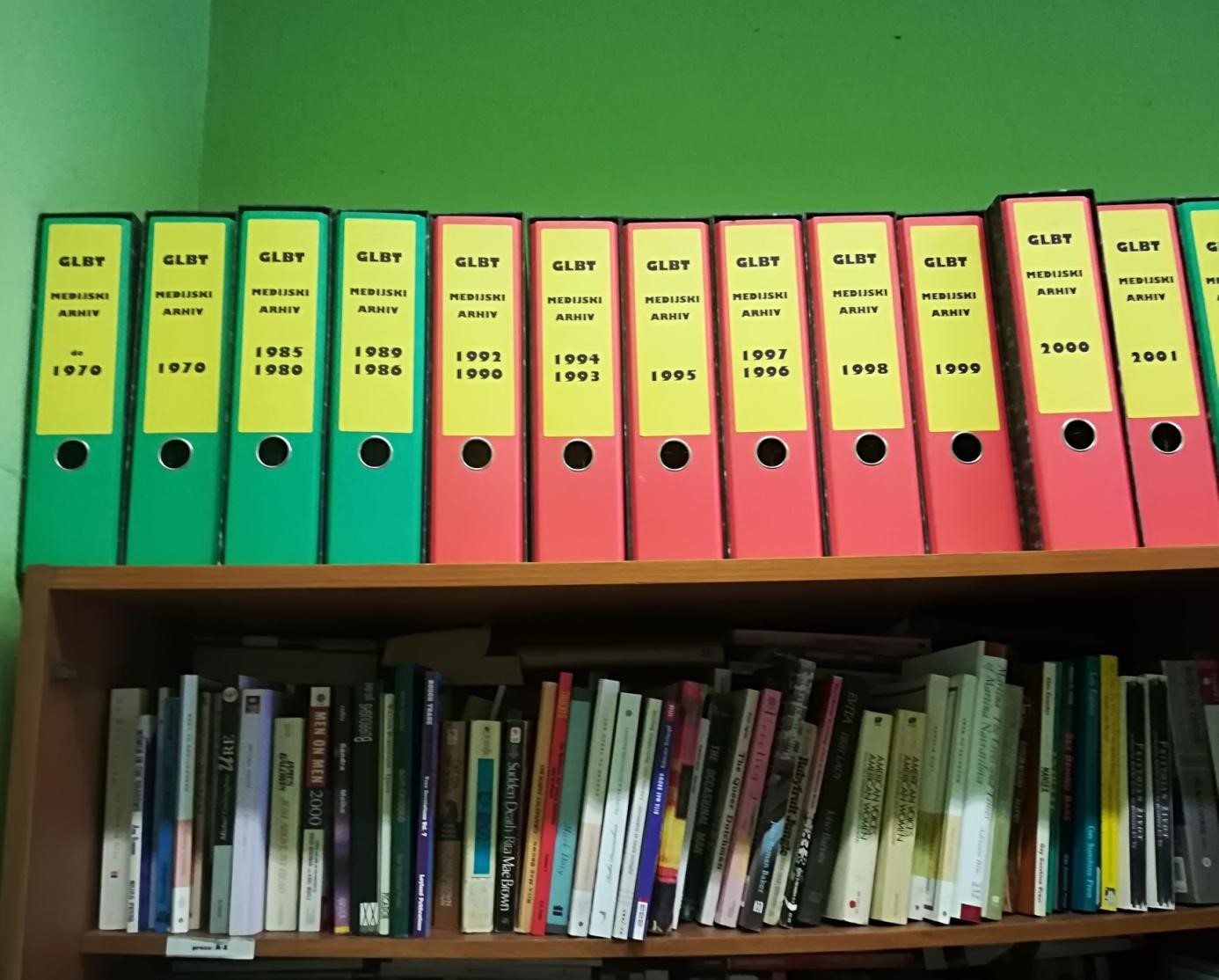The Lesbian Section LL (later called ŠKUC LL) was founded in 1987, as part of ŠKUC-Forum, the main Slovenian non-profit student and youth cultural organization. ŠKUC (an acronym for Student Cultural and Artistic Centre/Študentski kulturno-umetniški center) cites as its inspiration and birthplace the 1968 student protests. The organization itself was officially founded in 1972, in Ljubljana. In the late 1970s and 1980s, ŠKUC became the central platform for promoting and supporting the alternative cultural scene and new artistic practices in Slovenia. The organization survived the dissolution of Yugoslavia and social and political transition, remaining loyal to its original goals and leftist politics. There are several programs and thematic sections currently active within ŠKUC, such as the Gallery, the Equal Opportunities Section, a publishing section, and the ŠKUC archives.
In the mid-1980s, ŠKUC welcomed lesbian and gay groups, and supported the 1984 Magnus Film Festival dedicated to homosexuality. Lilit, the first Yugoslav feminist lesbian group, was established in 1985, and two years later it became ŠKUC LL (LL referring to Lesbian Lilith), having remained an independent organization within the broader ŠKUC network to this very day. Together with the gay group Magnus, ŠKUC LL has organized round tables, direct actions, and parties, published bulletins and other materials (Lesbozine), spoke out publicly in the mainstream press and at feminist gatherings. When appealing to the authorities, Magnus and LL act jointly, mainly via public statements, letters and editorials. Their main demands were the integration of homosexuality into socialist society, and the constitutional ban on discrimination based on sexual orientation (Velikonja and Greif 2012). A lengthy article about lesbianism in the magazine Mladina, featured on the front cover, and bearing the title “We Love Women” (”Ljubimo ženske,” Mladina, no. 37, Oct. 30, 1987, Ljubljana) is considered one of ŠKUC LL’s most recognizable and successful actions. The Week of Lesbian Cinema was held in 1988, in the ŠKUC Gallery in the very heart of Ljubljana. By the end of the 1980s, lesbian activism became an integral part of new social movements and the lively alternative cultural and club scene in Slovenia, but it also began articulating political demands and promoting the social acceptance and normalization of homosexuality. Slovenian lesbian activists made contact and lasting friendships with lesbians from other Yugoslav cities, namely Zagreb and Belgrade, and encouraged them to organize themselves and speak out publicly. ŠKUC LL continued its activities after Slovenia gained independence, and during the 1990s, the organization became one of the most active LGBT groups in the country. In cooperation with Magnus, ŠKUC LL co-founded the Roza Klub group, maintained the tradition of film festivals, published the gay and lesbian magazine Revolver, organized parties in the K4 club, fought homophobia and promoted LGBT rights and the values of an open society with equal opportunities.
At the end of 1990s, ŠKUC LL turned to sexuality and gender studies, in particular LGBT and queer theory, history and literature. The group publishes books, edited volumes and articles, for instance in special issues of Časopis za kritiko znanosti, and cooperates with academics at the University of Ljubljana. In the last 20 years, more than 30 books have been published as part of the Vizibilija series (a part of ŠKUC publishing). These consist of literature and non-fiction by Slovenian authors, and numerous translations of seminal works in gay and lesbian studies. On May 1, 2001, ŠKUC LL opened the Lesbian Library and Archive. In December 2000, preceding the establishment of the Library, a comprehensive bibliography of books and other LGBT-related writings in the Slovenian language was completed and published (Izbrana bibliografija, 2000). The Library contains mainly of foreign literary, theoretical, scientific and other writings, and a collection of newspapers and magazines. The Archive collection is focused on Slovenian materials and covers the period from the 1970s onwards. The Library’s catalogue is available online at: http://www.ljudmila.org/lesbo/knjiznica.htm.

